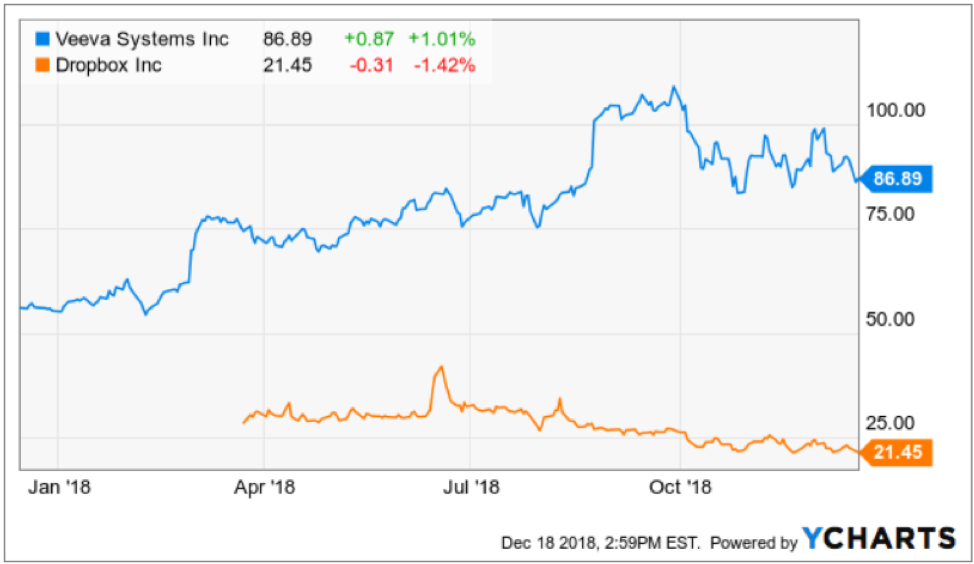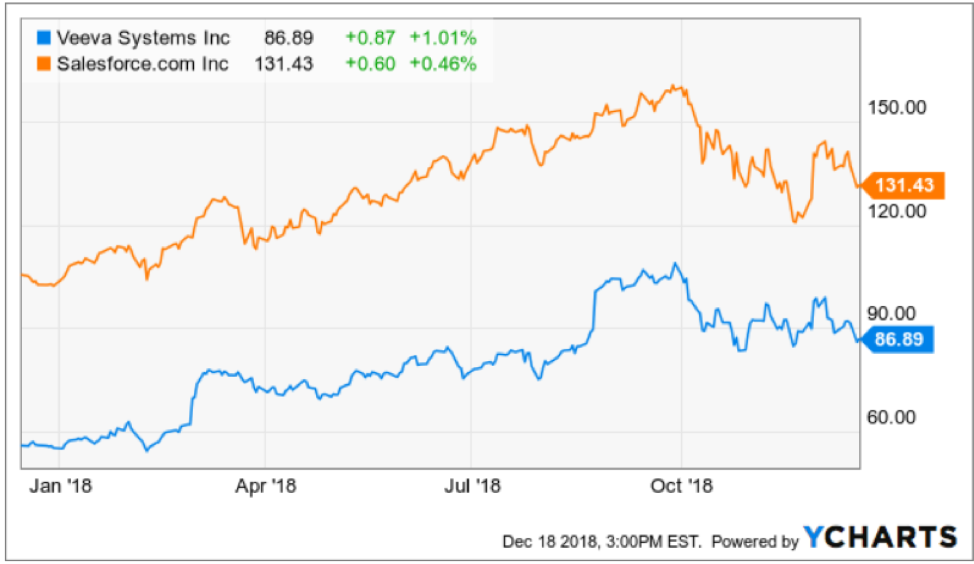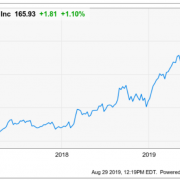How Tech is Eating into Healthcare Costs
It’s undeniable that American healthcare costs are a big part of a family’s monthly expenses.
Rising deductibles and out-of-network fees are a few of the out-of-pocket costs that can singe a hole in the average joes’ pocket.
It was only in 2016 when healthcare insurance costs eclipsed more than $10,000 a year per person, and over the past 12 months, 68% of people surveyed admitted that future healthcare costs would probably consume a larger part of their earnings.
The result is that healthcare companies are making money hand over fist.
Is there something that I deduce from this lucrative part of the economy that has the potential to feed into the tech sector?
The tidal wave of money spilling into the healthcare industry has also given impetus to these firms hoping to buttress their networks and IT with modern tech infrastructure to take advantage of the efficiencies on offer.
Building the best cloud services geared towards specific industries has been a winning formula and the generated momentum will continue into the next calendar year.
Prime models can be seen all over the tech ecosphere and they will be big winners of 2019.
One example is Twilio (TWLO) who has quietly risen the bar for communication cloud products.
A panoply of small companies can now offer professionalized email, text message, automated voice mail services amongst other services that do the work of 100 employees.
Recently, I touched on a cloud company named Okta (OKTA) responsible for managing the facilitation of passwords.
This identity management company was formed by a group of former Salesforce executives.
In my book, a Salesforce (CRM) credential is a golden stamp of approval for newly formed cloud-companies seeking to develop new cloud products in broad industries.
Why?
Salesforce’s client relationship management platform (CRM) is ubiquitous and the most popular enterprise software.
The way they develop their model is by launching and acquiring new e-commerce and marketing services - which lure in customers into its walled gardens.
Salesforce also applies its artificial intelligence platform Einstein to harness customer relationships and help businesses carry out decisions based on data alone instead of testosterone and emotion.
This all means that Salesforce executives have their finger on the pulse of the cloud landscape and know how to build a cloud business from scratch which is valuable.
They know what certain industries require to mushroom and can deploy resources in the quickest way possible while surrounding themselves by hordes of software engineers who can be poached for a certain fee.
The framework being in place is a massive bounty for these executives who just line up the dots then motor on to an industry confirmed by the data.
And remember that 99.9% of people do not have access to this proprietary data.
Consequently, they know more about corporate America than most Fortune 500 CEOs.
Marrying up the healthcare industry to the cloud was just a matter of time.
Veeva Systems (VEEV) is a cloud-computing company focused on pharmaceutical and life sciences industry applications.
Founder and CEO of Veeva Systems Peter Gassner cut his teeth at Salesforce serving as Senior Vice President of Technology.
His job was building the salesforce.com platform including product, marketing and developer relations.
Gassner has effectively transplanted the Salesforce platform model and applied it to the life sciences industry and has done a great job doing it.
The Veeva Commercial Cloud includes a CRM platform that aids drug company’s management of clients.
The Veeva Vault is a tool that tracks industry regulations, clinical trials, and recommends actionable habits in the cloud.
Veeva's CRM platform is powered by the Salesforce1 app development platform and is integrated into the broader Salesforce Marketing and Service Clouds.
The first mover advantage has offered all the low-hanging fruit for Veeva.
The lack of competition surely never lasts but the extra time to pad their lead is only a positive to its business model.
Veeva has already lured in some of the health industries biggest names such as GlaxoSmithKline (GSK), AstraZeneca (AZN), Merck & Co. (MRK), and Novartis (NVS).
These heavy hitters are meaningfully tied to its ecosystem, and it is safe to say that these relationships are only scratching the surface and have the potential to expand as Veeva installs more add-on tools into its platform.
The popularity shows up in the numbers with Veeva’s 3-year sales growth rate hovering around 30%.
Even better, the profitability of Veeva is indicative of the strength in its business model. They are simply at the right place at the right time to capture the momentum from the digital crossover in the healthcare industry.
Many similar names like Dropbox (DBX) are enormous loss-making enterprises but Veeva has shrugged off this stereotype that many cloud companies of its size can’t be profitable.
The effect of being strategically placed in a position to cherry pick the lucrative healthcare industry has also seeped into the strong profit margins of Veeva able to grow it to over 32%.
Touching more on the profitability, EPS has kicked into gear sequentially rising 80%, and the long-term outperformance is backed up with a 3-year EPS growth rate of 41%.
This cloud company is incredibly profitable for its size, and part of that is the absence of competition which increases pricing power.
Dropbox does not have that luxury of favorable pricing schemes which cripple profitability and leads to attrition and just as harmful – a price war.
Veeva’s forecasts for next year blew past Wall Street’s estimates and the company is modeling for EPS of $1.58 and revenue around $856 million in 2019.
Gassner has even publicly acknowledged that he expects 2019 revenue to come in between $1 billion and $1.1 billion which is a full year ahead of schedule.
The bullish guidance is a clue that the overall cloud story is alive and kicking, and there is absolutely no weakness whatsoever.
Making this story even more compelling is that in the last five years, profits are up six-fold, revenue is up four-fold, and the number of new products is up three-fold.
As we advance into 2019, I believe Veeva is a buy-on-the-dip candidate because of its favorable market position, rapidly expanding margins, and its low enterprise value of $11 billion which deems it, as I daresay, a lucrative buyout target for larger industry cloud players like Salesforce.
The tech industry has a habit of coming full circle become of its network effect of capital, talent, and management.
I would be interested in dipping my toe into any of Salesforce’s offspring because these models are built to scale and are waiting on the doorstep to seize revenue from industry migrating to digital.
Okta did it, and Veeva Systems made the leap of faith too, confirming that the Salesforce method is a path to untold profits for cloud-based software companies.
When the market can finally digest the macro rigmaroles, shares for this innovative and hyper-growth cloud company is set to take off.





